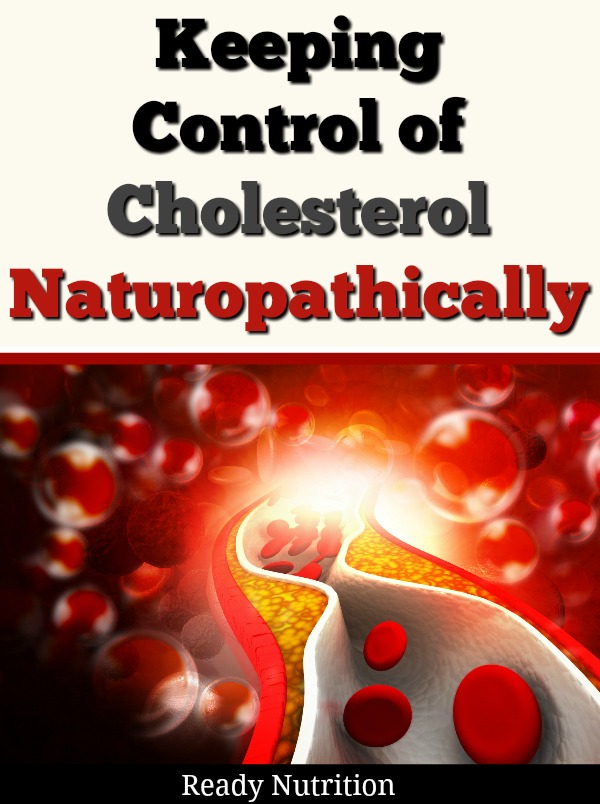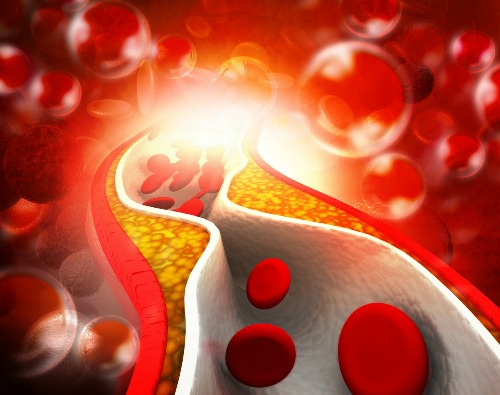The cold weather months bring about sluggishness and not want to venture outside as often as you would during warmer times of the year. This can put a damper on your personal fitness program and to your health.
The problem (perhaps antithetically speaking) is not cholesterol. Believe it or not, cholesterol is very vital to your body. It is important for your hair and skin, and if you’re a man who lifts or exercises, it is vital…a precursor to testosterone, that crucial hormone so short in the “soy boy” population.
Too much of anything is not good, and the reason we’re highlighting cholesterol is that the majority of people (for one reason or another) do not lift or perform strenuous physical exercise. This article also will help those who are elderly, or on a fixed income, or on such a rigorous work schedule that they cannot find the time to exercise at all.
The problems arise with cholesterol when you are not exerting enough physical energy or metabolic activity to effectively eliminate it or convert it from your body. The cholesterol is an LDL (Low-Density Lipoprotein) that starts out as a “gluey” substance that adheres to the walls of your arteries. With time this substance hardens and forms arterial “plaques” that lead to high blood pressure, strokes, and heart attacks. A stroke is caused by a blood vessel in your brain being blocked, to put it simply. A heart attack is the result of the coronary arteries (the ones that supply the heart itself with blood, and therefore oxygen) being blocked.
There are a few herbs and foods for starters that you can supplement your diet with that will help you with cholesterol. Let’s cover a few of them.
- Garlic. Yes, garlic. It actually reduces LDL’s and triglycerides. It also lowers the blood pressure and will help with the peripheral arteries of the legs (reducing leg cramps. Garlic is not expensive and is best consumed raw in the form of the cloves. I’ve written extensively on it, and you can peruse the articles in the archives to go into more detail. You can also buy it in pill or capsule form at your friendly neighborhood big-box store. One precaution is to stop taking it prior to surgery, as it thins the blood and reduces clotting ability.
- Cayenne Pepper. Oh yeah, ba-by! The peppers contain a high amount of Vitamin C, and the capsaicin in it helps prevent blood clotting and the hardening of the arteries. Cayenne pepper also increases heartbeat strength and efficiency. Those with digestive problems need to limit the amount they ingest. It is best taken with your food, as the food buffers the lining of your stomach. Don’t ever take it by itself.
- Black Pepper. Who doesn’t like black pepper? Well, certainly somebody. All the same, it increases blood circulation and helps with blood pressure. Although it doesn’t directly attack cholesterol, it affects the vessels and helps them to prevent cholesterol’s harmful effects. Also, taking it with Turmeric/curcumin potentiates the effects of piperine, an active ingredient of the pepper.
- Hawthorn. Comes from a berry. Hawthorn is an adaptogenic herb. Check this out. If you have high blood pressure, hawthorn will lower it. If you have low blood pressure, Hawthorn will raise it. It directly reduces the levels of unhealthy cholesterol in your system. Heart patients or those using heart medications check with your happy doctor prior to taking the hawthorn.
- Legumes. Yes, that’s beans! The consumption of kidney beans, navy beans, pinto beans, and so forth directly reduces cholesterol levels. Just don’t mix them up with bacon or cook them with something that defeats the purpose!
- Oatmeal. The good old bowl of oatmeal in the morning will actually help you to lower your cholesterol.
So, we have started out with some basics, and now it is up to you to incorporate those basics into your routine. The best overall thing you can do (besides put down the fork) is to tailor-make a good, solid exercise program coupled with a healthy diet. Your goal is not to eliminate cholesterol from your diet. Your goal is to take in a healthy amount of it and maintain yourself so that the healthy level does not climb to a level that is excessive and harmful. JJ out!

This article was originally published at Ready Nutrition™ on March 25th, 2019








Complete garbage. Cholesterol is essential for life as correctly stated.. but also making up 40% of the cells’ double membrane, nerve sheathes and brain. To even suggest that too much of a life-giving substance, under say inactivity or age, becomes harmful shows a poorly informed author.
Maintain a healthy diet says the author.. yet the Healthy Eating advice of Mainstream is to greatly reduce butter, cream and full fat milk products. What the author doesn’t know here is that these all synthesize the B vitamins in the gut, and that B6, B12 and folates reduce artery-clogging homo-cysteine, one of the 3 main causes. Malhotra S L, Dr. published 11X in The Lancet UK Med J.
Also advised is to limit egg yolks to 2X weekly, yet 2 yolks daily have enough anti-oxidants to reduce artery-clogging inflammation. They contain selenium, amino acids l-cysteine, l-tyrosene etc and vitamins.
Further, trimming he fat off meats is wrong as animal fats are high in artery-protective, OM3, LCFAs and CLA.,
I once challenged the Prof of Nutrition at a famous Med School as why she taught the nonsensical calories, cholesterol, RDAs, food groups etc. She admitted she had to teach what was in the book, although she knew much better.